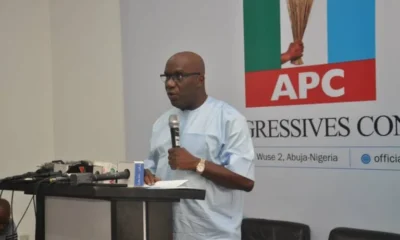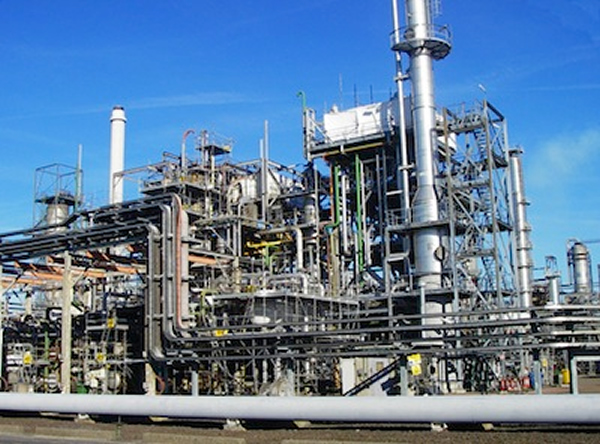Strong indications emerged at the weekend that prices of “Premium Motor Spirit” (PMS), popularly called petrol, may crash further in 2025.
Industry experts, who spoke to Saturday Sun, noted that petrol, which currently sells for between N900 and N950 in many fuel stations, may have its price further crashing to as low as N500 a litre in the course of the year.
According to oil stakeholders, the likely drop in prices of petrol in 2025 is premised on a strong downstream sector propelled by the deregulation policy of the federal government.
According to industry players, other reasons for the price drop include stable foreign exchange policy, price competition, “Naira-for-crude” policy and the coming on stream of the Port Harcourt, Warri, and Dangote refineries. They also affirmed that for the refineries to sell their products in the domestic market and accept payment in naira will contribute to price fall.
The Federal Executive Council (FEC) had last July approved the sale of crude to local refineries for payment in naira.
In addition to this is the rebound of activities by modular refineries, which are now upbeat about the downstream sector and have concluded plans to add petrol refining to their stable of products in addition to diesel, which hitherto was their sole product line.
This comes as Nigeria’s current daily petrol consumption has hit approximately 40 million litres with local production. According to truck-out data from the Nigerian Midstream and Downstream Regulatory Authority (NMDPRA), Dangote Refinery contributes an average of seven million litres while NNPCL controls 1.2 million litres, bringing the total to 8.2 million litres.
Modular refineries are out of the picture as they only produce diesel for now. The country currently has about 25 licensed modular refineries but only five are in operation.
This means that only 20.5 percent of the country’s petrol need is met through local refining, while the remaining 79.5 percent or 31.8 million litres are imported.
At the moment, the Dangote Refinery is producing about 30 million litres of petrol but only injects about seven million litres into the domestic market, a figure which increased by five million litres in October, up from its initial 25 million litres.
On the contrary, the 125,000 barrels per day Warri Refining and Petrochemical Company (WRPC), which commenced operations a few days ago, is operating at 60 percent capacity with the production of Kerosene, Diesel, and Naphtha.
Prior to the commencement of operations of Warri refinery, the 60,000 barrels per day old Port Harcourt Refinery, which commenced operations over a month ago, is injecting about 1.4 million litres of petrol via blending with straight-run gasoline, 1.5 million litres of diesel and 2.1 million litres of LPFO.
According to the Group Chief Executive Officer (GCEO), NNPC Ltd, Mr. Mele Kyari, the 150,000 Port Harcourt Refinery 2 is currently undergoing rehabilitation and is at 90 percent completion stage, ditto for the Kaduna Refinery which is also undergoing rehabilitation. But a presidency source told Saturday Sun that the Kaduna Refinery may not come on stream anytime soon due to the huge cost implication and other technical reasons.
Though Kyari had recently said NNPC was no longer importing petrol, major marketers and some private depot owners were still importing about 30 million litres daily to bridge supply shortfall.
But the National Publicity Secretary of the Independent Petroleum Marketers Association of Nigeria (IPMAN), Mr. Ukadike Chinedu, in a telephone interview with Saturday Sun, said the coming on stream of Port Harcourt and Warri refineries is a game changer for the downstream sector as it will promote a healthy price competition as already being witnessed.
He said both the Nigerian National Petroleum Company Ltd and Dangote have reduced prices in the last three weeks, a signal to the gains of multiple sources of production.
Besides, he said the coming on stream of the NNPC Ltd refineries in addition to Dangote’s gives petroleum marketers and consumers the option of multiple sources of products as against a monopoly market.
Ukadike was upbeat that this development will see prices of petrol drop further below N500 per litre in 2025 as more players add capacity to refining petroleum products.
Again, he said the foreign exchange policy of the Federal Government is already yielding some positive results with a dollar exchanging for less than N1,800, adding that if this trend is sustained, petroleum prices would crash further because more foreign exchange would be conserved when products are no longer imported.
He further disclosed that more modular refineries are now beginning to take steps to add petrol refining to their line of products because they are now certain of the market through improved product demand.
According to him, all these improvements being witnessed in the sector are a result of the deregulation of the downstream sector, which promotes efficiency, healthy rivalry, and price competition among players to the benefit of the consumers.
The IPMAN Publicity Secretary further pointed out that the “naira-for-crude” policy of the Federal Government is a major factor that will shape petrol prices in 2025 as it would tame inflation and reduce foreign exchange pressure.
Also speaking, the President of the Petroleum Products Retail Owners Association of Nigeria (PETROAN), Mr. Billy Harry, aligned with Ukadike.
Harry assured that the coming on stream of the Port Harcourt and Warri refineries would lead to cheaper fuel options for Nigerians.
The PETROAN President maintained that the possibility of affordable petrol for Nigerians is very feasible in 2025.
“As you can see, NNPC has reduced its ex-depot price from N1,045 per litre to N899 per litre for marketers, translating to N925 per litre at the pumps for the end users. This, I must say, is very commendable. These are not small drops, but massive drops from N1,045 to N899 ex-depot is a lot of drop.”
On the other hand, he said the Dangote refinery equally implemented a similar ex-depot price slash from N970 to N899.50 per litre. He pointed out that with the consistent availability of petroleum products, competition will set in and prices of petroleum products will drop further in the New Year.
In his submission, the Publicity Secretary of Crude Oil Refiners Association of Nigeria (CORAN), Mr. Iche Idoko, said Nigerians would gradually begin to witness the gains, which is typical of a deregulated market.
“Price drop is one of the characteristics of deregulation we had highlighted. As the industry settles in to the regime of full deregulation, we are bound to see competitions amongst players, which ultimately will benefit the consumers.”
According to him, these competitions will be around prices, product quality, and credit lines available to bulk buyers.
This, he said, are the advantages that local refining brings. As more local refineries come on stream in the coming months, the industry shall see these positive trends of refiners and suppliers wooing consumers with price reduction and all manner of incentives.

 BIG STORY2 days ago
BIG STORY2 days ago
 BIG STORY5 days ago
BIG STORY5 days ago
 BIG STORY4 days ago
BIG STORY4 days ago
 BIG STORY1 day ago
BIG STORY1 day ago
 BIG STORY5 days ago
BIG STORY5 days ago
 BIG STORY4 days ago
BIG STORY4 days ago
 BIG STORY5 days ago
BIG STORY5 days ago
 BIG STORY4 days ago
BIG STORY4 days ago














